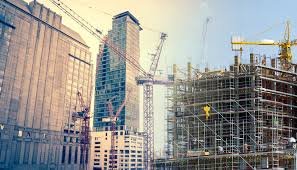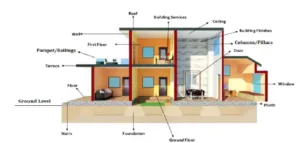How to Choose the Right Construction Contractor for Your Project…
Here’s a detailed blog outline for “How to Choose the Right Construction Contractor for Your Project”:
Introduction
- Emphasize the importance of selecting the right contractor as the foundation for a successful construction project.
- Mention the risks of choosing the wrong contractor, such as delays, poor workmanship, and budget overruns.
- Briefly outline what the blog will cover—factors to consider, questions to ask, and how to evaluate potential contractors.
1. Define Your Project Scope and Needs
- Explain the importance of knowing exactly what you need before searching for a contractor.
- Detail how defining the scope, budget, timeline, and key goals helps in finding a contractor with the right experience.
- Discuss whether you need a general contractor or a specialist for more complex projects.
2. Look for Experience in Similar Projects
- Emphasize the need for a contractor with experience in projects similar to yours (e.g., commercial, residential, renovation, etc.).
- Look for portfolios or case studies that showcase completed projects of similar scale and complexity.
- Share how industry-specific experience reduces risks and ensures a smoother process.
3. Verify Licensing and Insurance
- Highlight why it’s crucial that your contractor has the required licenses to operate in your region.
- Explain the types of insurance (general liability, workers’ compensation) they should carry to protect you in case of accidents or damages.
- Provide tips on how to verify licenses and insurance coverage through local authorities.
4. Check References and Reviews
- Discuss the importance of speaking with past clients to get feedback on their experience.
- Offer a list of questions to ask references, such as the contractor’s professionalism, communication, and ability to stay within budget.
- Encourage reading online reviews and ratings from sites like Google, Yelp, or industry-specific platforms.
5. Evaluate Communication and Responsiveness
- Explain how clear and consistent communication is key to a successful project.
- Discuss the signs of a responsive contractor: they return calls/emails promptly, answer questions clearly, and are transparent about potential challenges.
- Mention that strong communication during the selection process is usually a good indicator of how they’ll handle the project.
6. Review Contracts and Get Detailed Estimates
- Stress the importance of reviewing the contract thoroughly before signing. It should include detailed cost estimates, timelines, materials, and project phases.
- Warn about contractors who provide vague or overly simplistic estimates.
- Discuss the benefits of itemized quotes and how they help you understand where your money is going.
7. Assess Project Management and Subcontractor Use
- Ask about how the contractor manages their team and what their approach is to supervising the job site.
- Inquire if they’ll use subcontractors, and if so, how experienced and reliable they are.
- Highlight that good project management ensures the job stays on schedule and meets quality standards.
8. Consider Pricing: Don’t Just Go with the Lowest Bid
- Explain the importance of comparing bids but caution against choosing a contractor solely based on the lowest price.
- Discuss how low bids can sometimes mean cutting corners or using cheaper, lower-quality materials.
- Encourage looking for a balance of reasonable pricing and high-quality service.
9. Inquire About Warranties and After-Project Support
- Ask if the contractor provides warranties for their work, and for how long.
- Discuss the importance of a contractor who will offer support or maintenance after the project is complete in case any issues arise.
- Give examples of common warranty coverage and post-project services.
10. Trust Your Instincts
- Remind readers that a good contractor should make them feel comfortable and confident in their ability to handle the project.
- Trust your gut if something seems off, like if they avoid answering questions, lack transparency, or seem disorganized.
Conclusion
Summarize the key steps: defining project needs, verifying experience and qualifications, and choosing a contractor who communicates well and fits your budget without sacrificing quality. Encourage readers to take their time during the selection process to ensure a smooth and successful construction project.
This approach will guide your audience through a well-rounded process of selecting the right contractor, reducing the risk of project pitfalls.











Add comment